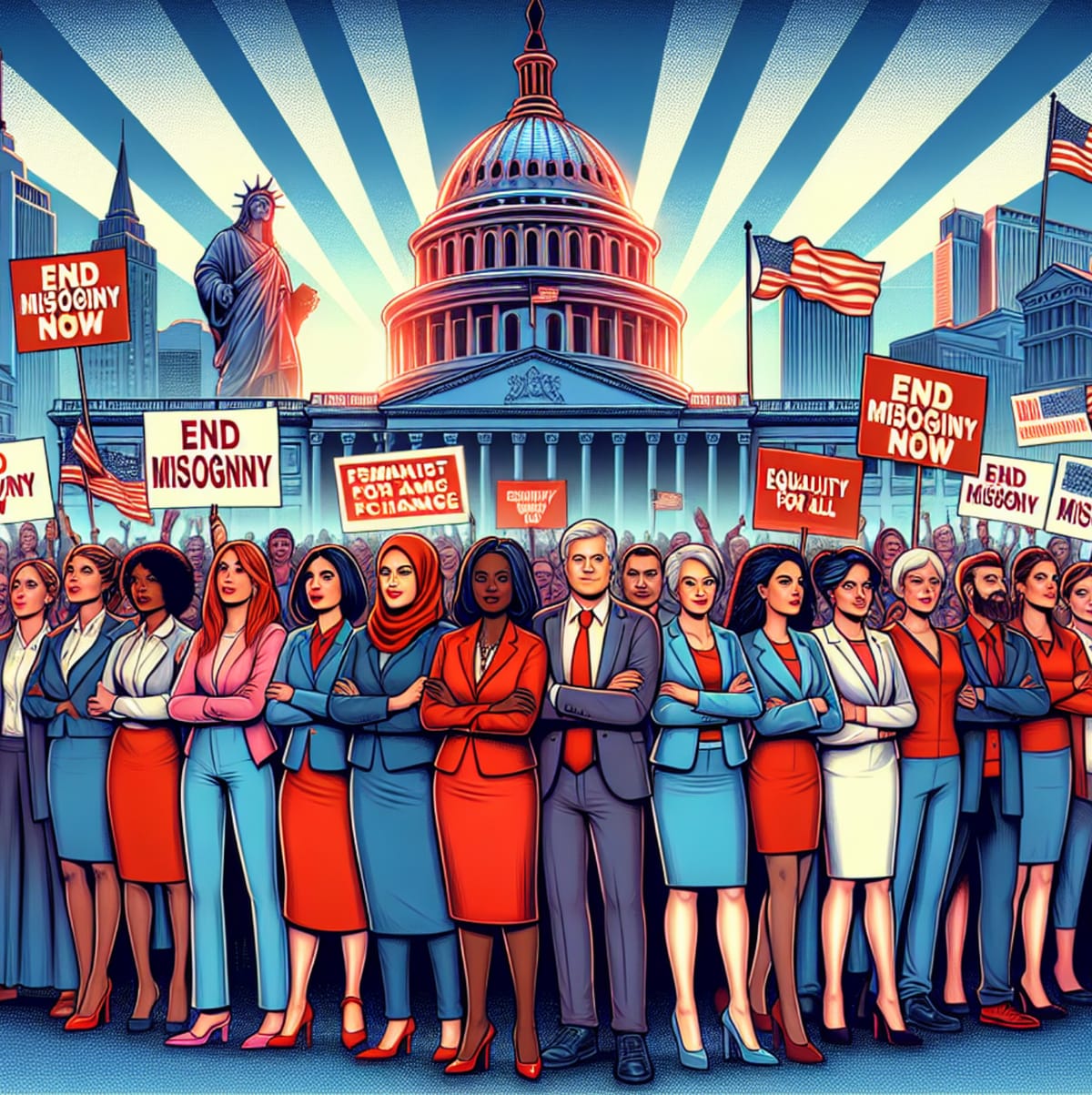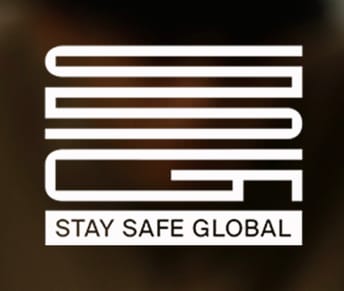When Misogyny Becomes Extreme: Why It's Crucial to Name It Accurately

In recent years, the conversation around misogyny has taken a sharp turn. What was once dismissed as mere prejudice or outdated attitudes is now being recognised for what it can become—extremism. For those committed to creating safe and inclusive environments, understanding why extreme misogyny should be viewed as extremism is crucial. This blog post will explore the impact of extreme misogyny on society, define its intersection with extremism, and highlight the roles we can all play in combating this pervasive issue.
In the UK, the proactive stance of the home secretary, Yvette Cooper, marks a significant shift in the recognition of extreme misogyny as a serious threat, akin to other forms of extremism such as far-right ideologies and Islamist extremism. This approach reflects an urgent response to the growing influence of harmful and hateful beliefs, particularly online, and acknowledges the urgent need for robust strategies to counteract this menace. Cooper's call for a rapid review seeks to address crucial deficiencies within the existing system, ensuring that the UK is no longer vulnerable to ideologies that fuel violence and undermine the democratic fabric of society. In this effort, the collaboration between governmental bodies, social media companies, and the broader community is seen as paramount. While questions remain about the balance between free speech and addressing hate, the initiative underscores a determination to draw a clear line against misogyny in the same decisive manner applied to other extremist ideologies, striving for a cohesive and resilient social framework.
Stay Safe Global stands at the forefront of supporting initiatives aimed at identifying and combating extreme misogyny, reinforcing its commitment to fostering safe and inclusive environments. By developing comprehensive education programs and partnering with organisations dedicated to dismantling harmful ideologies, Stay Safe Global plays a crucial role in this collective effort. Our focus on community engagement and awareness campaigns helps to amplify the voices of change-makers and create a unified front against misogyny.
Understanding Extreme Misogyny and Its Societal Impact
Extreme misogyny isn't just harmful attitudes or behaviour; it's a well-documented and escalating issue that impacts every facet of society. Women face an array of dangers—from physical violence to severe mental health challenges—due to deeply ingrained misogynistic beliefs. Professional opportunities are often stifled by environments that tolerate or even encourage gender-based discrimination.
Moreover, extreme misogyny not only affects women but also undermines the social fabric by perpetuating inequality and intolerance. It fosters a culture where harmful stereotypes are normalised, shaping perceptions and interactions in everyday life. The far-reaching consequences extend beyond individual experiences, impacting communal trust and cohesion. Recognising these implications is essential to fostering an informed dialogue and prompting decisive action. By addressing and dismantling the structures that sustain misogyny, society takes a crucial step towards inclusivity and equality. Compassionate engagement and targeted intervention must guide our actions, ensuring that efforts to combat extremism are holistic and transformative. Only then can we create a world where respect and equality are foundational, not aspirational.
The Intersection of Misogyny and Extremism
When misogynistic views become extreme, they align closely with the framework of other forms of extremism. Defined by the use of fear, intimidation, and sometimes violence to achieve ideological goals, extreme misogyny fits this definition disturbingly well. This raises the question—shouldn't we treat it with the same level of urgency as other forms of extremism?
Abuse Statistics
The statistics surrounding misogyny and abuse are staggering. According to the World Health Organization, one in three women globally experience physical or sexual violence in their lifetime, primarily from an intimate partner. This isn't just a personal issue; it's a societal crisis that demands systemic change.
In the workplace, the situation is equally dire. A UK study revealed that four out of five women experienced some form of sexual harassment at work, with most feeling unable to report it. This pervasive atmosphere not only harms the victims but also corrodes the organisational culture, leading to decreased productivity and high employee turnover.
A report by UN Women found that, globally, 58% of women and girls aged 15-49 years who reported experiencing violence said it occurred at the hands of a current or former partner. Alarmingly, estimates suggest that nearly 137 women are killed by a member of their family every day.
Online spaces amplify these threats, with the Pew Research Center reporting that 73% of women have encountered online harassment, with 53% identifying it as gender-based. These environments foster widespread hostility, impacting women's participation and representation in digital discourse.
Economically, the consequences are stark as well. According to a McKinsey Global Institute report, closing gender gaps in labor markets could add up to $28 trillion to global GDP by 2025. Yet, pervasive misogyny acts as a significant barrier to achieving this potential, creating environments hostile to women's economic participation.
These statistics serve as a call to action, highlighting the systemic nature of misogyny and the urgent need for comprehensive strategies to address it. Clear, coordinated efforts are essential to create environments where women are safe, respected, and equally represented.
What Is Incel Culture?
One of the most troubling manifestations of extreme misogyny is 'incel' culture. Incels, or involuntary celibates, are predominantly young men who feel disenfranchised due to their inability to form romantic or sexual relationships. This subculture has roots in the broader 'Manosphere,' which includes groups like Men's Rights Activists (MRAs), Men Going Their Own Way (MGTOW), and Pickup Artists (PUAs).
Incels adhere to a belief system that blames women for their lack of sexual success, often advocating violence as a form of retribution. The tragic case of Elliot Rodger, who killed six people in 2014, highlights the potential for this ideology to escalate into real-world violence.
Initially confined to obscure corners of the internet, incel ideology has regrettably infiltrated mainstream discourse, exerting a profound influence on everyday life and culture. What once was an underground community has found broader exposure through social media platforms and internet forums, reaching vulnerable individuals who may be susceptible to its toxic narratives. This expansion has not only normalised violent misogynistic rhetoric but also emboldened individuals to act on these beliefs in alarming ways. The permeation of such ideology highlights a chilling reality—harmful stereotypes and violent rhetoric are not constrained to private chat rooms but are now influencing public spaces and dialogues. We must urgently address this transition by fostering digital literacy and promoting positive online engagement, striving to reclaim spaces that should champion equality and respect. Another way to combat this is through measures the UK government is considering. Through proactive measures, society can play a pivotal role in curbing the spread of extremist viewpoints and preventing their insidious integration into the tapestry of daily life.
Effects of Extreme Misogyny on Women's Safety
The impact of extreme misogyny on women's safety is profound. Women face heightened risks of physical and sexual violence, both in public and private spaces. The normalisation of degrading and violent behaviour towards women perpetuates a cycle of fear and insecurity.
Beyond physical safety, the constant threat of harassment or violence takes a toll on women's mental health. Anxiety, depression, and PTSD are common among those who have experienced extreme misogyny, affecting their overall quality of life and well-being.
While it is important to recognise that men can and do experience violence and domestic abuse, the data consistently shows that these acts are predominantly gendered crimes, disproportionately affecting women. In the context of extreme misogyny, women's experiences of violence are uniquely severe due to entrenched societal norms that perpetuate inequality and discrimination. This gendered dimension underscores the urgent need for focused interventions that address the root causes of misogyny and actively dismantle these toxic frameworks. By acknowledging the specific vulnerabilities faced by women, society can craft more effective policies and support systems to ensure safety and equity across all genders.
The Impact on Professional Opportunities
Extreme misogyny extends into the professional realm, where it can severely limit women's career opportunities. Gender discrimination, pay gaps, and sexual harassment create hostile work environments that deter women from advancing or even remaining in their fields. This not only harms individual careers but also deprives organisations of diverse talent and perspectives.
The UK Government's Stance on Extreme Misogyny
Recognising the severity of the issue, the UK government is taking steps to address extreme misogyny as a form of extremism. The upcoming Worker Protection Act, an amendment to the UK Equality Act 2010, mandates that companies take proactive measures to prevent sexual harassment and provide safe working environments.
This legislative move signifies a shift in how society views and addresses extreme misogyny, emphasizing the need for systemic change and strict enforcement of anti-harassment policies.
Practical Steps to Combat Extreme Misogyny
- Education and Awareness:
- Conduct regular training sessions on gender sensitivity and anti-harassment policies.
- Raise awareness about the harmful effects of extreme misogyny through workshops and seminars.
- Policy Implementation:
- Enforce strict anti-harassment policies and ensure they are well-communicated to all employees.
- Provide confidential reporting mechanisms for victims of harassment.
- Support Systems:
- Establish support groups for employees who have experienced harassment or discrimination.
- Partner with external organizations that specialize in victim support and advocacy.
- Community Engagement:
- Encourage community involvement in initiatives aimed at combating misogyny and promoting gender equality.
- Support local and national campaigns that address gender-based violence and discrimination.
- Leadership Commitment:
- Ensure that company leaders are committed to creating a safe and inclusive environment.
- Hold regular meetings to review and improve anti-harassment initiatives.
Conclusion
Viewing extreme misogyny as a form of extremism is more than a matter of semantics; it's a necessary shift in perspective that acknowledges the severity of the issue and the urgent need for action. Recognising and addressing extreme misogyny is crucial for building a more inclusive and equitable society.
By taking practical steps to combat this issue, we can create environments where everyone feels safe, respected, and valued. Let's work together to challenge extreme misogyny and make our communities and workplaces better for all.
For those interested in taking proactive measures, consider partnering with organisations like Stay Safe Global, which offers comprehensive solutions to tackle misogyny and create safer environments.





